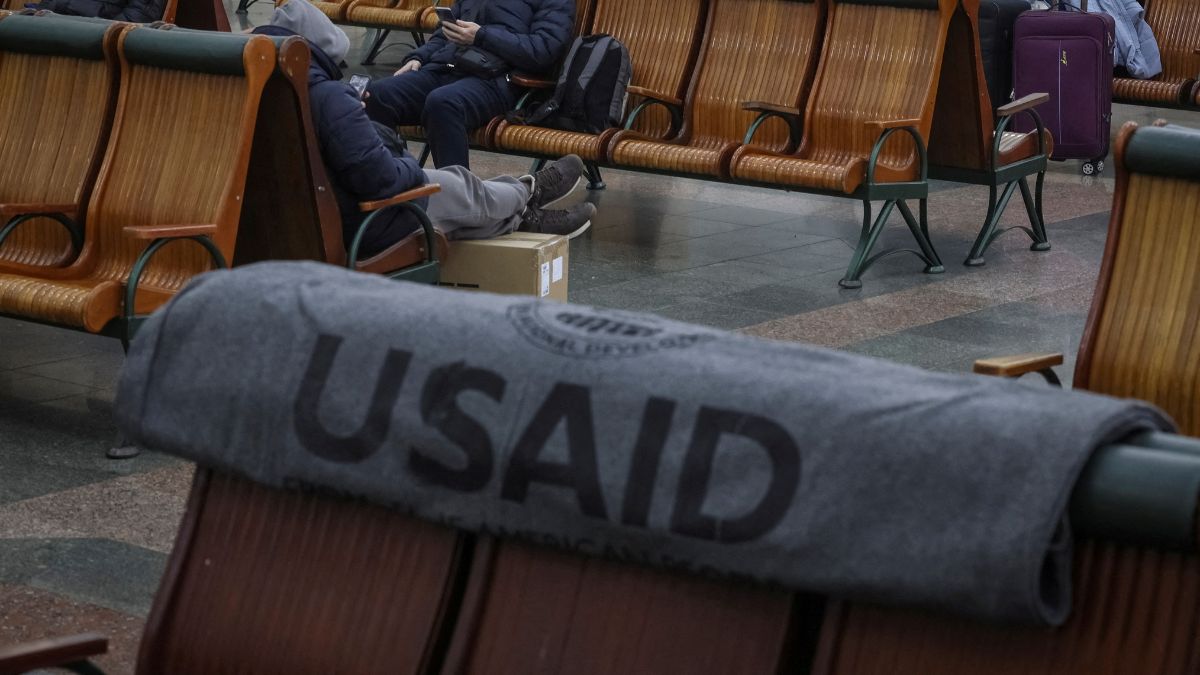Billionaire Elon Musk, leading US President Donald Trump’s federal cost-cutting initiative, has indicated that the United States Agency for International Development (USAID) may soon be shut down. During a discussion on X, Musk stated that the agency is “beyond repair,” adding that Trump supports its closure.
On Sunday, Musk accused USAID of being “a criminal organisation” without providing any evidence and added “Time for it to die”.
The move aligns with the broader restructuring efforts led by Musk’s Department of Government Efficiency (DOGE), which aims to reduce government spending significantly.
The Trump administration has already begun taking action, including the r emoval of two top security officials at USAID after they attempted to prevent DOGE representatives from accessing restricted areas within the agency’s headquarters.
Meanwhile, nearly 100 USAID employees have been placed on leave, and the agency’s official website has remained offline since Saturday. USAID’s main social media accounts have also been deleted.
Reports also indicate that multiple senior USAID officials have lost access to their emails, further curbing internal operations.
Global impact of USAID’s potential shutdown
As one of the world’s largest official development aid agencies, USAID plays a critical role in global humanitarian assistance. In 2023, the US provided $72 billion in aid, supporting initiatives such as women’s health in conflict zones, clean water access, HIV/AIDS treatments, and energy security.
The agency accounted for 42 per cent of all humanitarian aid tracked by the United Nations in 2024.
The freeze on US foreign aid has already disrupted several key programmes, including field hospitals in Thai refugee camps, landmine clearance in war zones, and medical treatments for millions suffering from diseases like HIV.
Aid organisations warn that if USAID is shut down permanently, it could result in dire humanitarian crises worldwide. Countries that rely on US assistance for economic development, disaster relief, and security support could experience significant setbacks, potentially opening the door for rival global powers to step in.
USAID was originally established in 1961 by US President John F Kennedy as part of the Cold War strategy to counter Soviet influence through economic aid and development programmes.
Over the years, it has been instrumental in stabilising fragile nations, preventing conflict, and responding to global health crises such as the Ebola outbreak and the COVID-19 pandemic.
If disbanded, experts argue that the absence of USAID could weaken the US’s geopolitical influence at a time when China is expanding its Belt and Road Initiative.
What’s the talk in Washington?
The move to dismantle USAID has sparked intense debate in Washington. While Trump and Republican allies argue that foreign aid is wasteful and should be redirected to align with “America First” policies, Democrats warn that eliminating USAID violates congressional authority.
US Senator Chris Murphy criticised the effort as an abuse of executive power, while House Foreign Affairs Committee Chair Brian Mast suggested that transferring USAID under the State Department would ensure “more command and control.”
Meanwhile, concerns have been raised over Musk’s growing influence within the federal government.
Reports indicate that DOGE has gained access to several government systems, including the US Treasury’s payment network, raising questions about data security and oversight. Democratic Senator Peter Welch has called for explanations on why Musk was granted such access, describing it as a “gross abuse of power.”
Members of Congress have indicated that they may pursue legal action to challenge Trump’s efforts to eliminate USAID, arguing that executive orders cannot override congressionally approved agencies.
A group of Senate Democrats has sent a formal letter to US Secretary of State Marco Rubio demanding an explanation for the sudden personnel changes and the removal of security officials at USAID.
Rubio, however, has stated that USAID’s programmes are under review to eliminate any initiatives that do not align with US national interests.
While USAID’s fate remains uncertain, signs point to an aggressive push to overhaul or absorb the agency into the State Department.
With inputs from agencies


)

)
)
)
)
)
)
)
)



